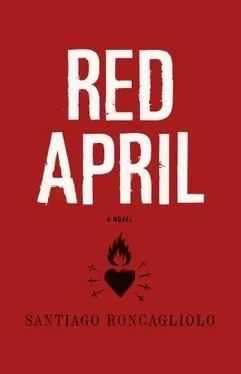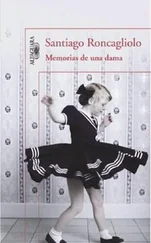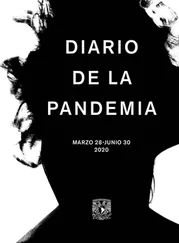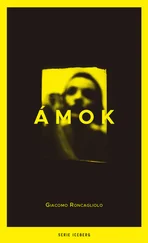He remembered a voice saying: You're an incompetent with no future, Félix. You'll never amount to anything. It was not his mother's voice, but he remembered it clearly. He remembered an empty pillow, like his mother's. He remembered the Lima fog at the windows of the enormous building where he worked, on Avenida Abancay. He did not want to go back there.
“I'm going to look for Mayta myself. I'm going to prove to the commander that I'm an exemplary prosecutor. Even if it fucks me up, excuse my language, the fact is this case makes me very nervous.”
On Saturday the 18th he got up at seven and had breakfast with a photograph of his mother in Sacsayhuamán, in her native Cuzco. It was a sunny, tranquil photo, as if meant to begin a good day. After saying good-bye, he closed the windows of his mother's room because he would be out late. He went to the jitney stop and took public transport. He sat between a woman carrying a hen and two boys who looked like brothers. When they left Ayacucho he enjoyed the view of the dry, interminable mountains and the river far below. The sky was clear. On the road to Quinua, the landscape became greener and more lush in places. At the end of the trip, the doors of the houses decorated with little ceramic churches indicated that he was close to his destination.
The prosecutor got out of the jitney beside a soccer field where about ten boys without shoes were playing. The two who had ridden with him ran to join the others. He realized too late that his trousers were covered with their snot. He cleaned it off with his handkerchief, passed the shops for tourists, and entered the village. He asked a street vendor:
“Mamacita. I'm looking for Justino Mayta Carazo. Have you seen him?”
The vendor did not take her eyes off her altarpieces and weavings. She said:
“Well, who's he I wonder?”
“Don't you know Justino? Don't you live in the village?”
“Well, what's he look like I wonder?”
“Do you know where this address is?”
“Not too far, right over there.”
Then she mumbled a couple of phrases in Quechua. The prosecutor understood that “not too far” could mean “two days away.” He remembered how difficult it is to question Quechua speakers, especially if they also do not feel like talking. And they never feel like talking. They are always afraid of what might happen. They do not trust anybody. Street by street he looked for the address he had written down on a piece of paper. Finally he came to a narrow house that seemed to have only one room downstairs and another upstairs, with one window. He knocked at the door. He had the impression that someone was watching him from the upstairs window, but when he looked up he did not see anything. After a long wait, an old woman opened the door a crack. In the darkness all he could see was one of her eyes and part of her long black braid.
“Well, what is it I wonder, Señor?”
“Good morning, Mamacita, I am looking for Justino Mayta Carazo. I am from the Ministry of Justice.”
She closed the door and when she was inside she asked him to show his identification. The prosecutor passed it to her under the door. He thought he heard whispering inside. He waited a while longer until the woman opened the door again and asked him to come in. The house was scantily furnished with a table and two chairs. It had no light and no bathroom. The sofa was on bricks instead of legs and had a blanket thrown over it. Two children watched curiously from the hand ladder that went up to another bare brick space.
“Justino isn't here,” said the woman. “He left.”
“Where could I find him?”
“Well, where is he I wonder? He left.”
“When did he leave?”
“A while ago now.”
“Do you mind if I take a look around the house? It is … an official investigation.”
She looked upward. She said nothing but did not try to stop him either. The prosecutor checked the small first floor, but there was nothing of interest. He began to climb the creaking ladder. The children watched him in silence. He greeted them, but they did not respond. They simply stared at him. He climbed up with difficulty because the ladder seemed about to fall. One of the boys coughed. The prosecutor got a splinter in his hand. He licked the puncture. Then he heard the thud. It was like a large sack of potatoes landing on the street. He went up two more rungs and was on the second floor. The upstairs window was open. He turned to go down but missed his step and fell to the bottom of the ladder. When he stood up, he felt a pain in his leg but went to the door and looked out. He caught sight of a man racing around the corner. For a second he wondered if following him was the responsibility of the Associate District Prosecutor or if he only had to pass along the information. Then he remembered the fire. He thought that pursuit was the responsibility of the National Police, and if he ran after the man, he could be liable for usurpation of duties. He looked at the woman:
“Who was that?”
“Who?”
“The one who left here.”
“Nob'dy left here. Nob'dy.”
He knew it would make no sense to accuse the woman of obstruction of justice. He went to the offices of the municipality. He was going to slip his official documents under the door but remembered that no one could sign the receipt certificate on a Saturday. He considered his official activities over for the day.
Before returning to the city, he decided to visit the Quinua plain. He climbed the highway until he reached the flatland crowned in silence that extended between the mountains in front of him. He was out of breath after the climb, but he was no longer limping. And it was peaceful. The only thing up there with him was the huge marble monument to the Liberators erected by the military government of Velasco. He imagined the heroic battle that had given the nation its freedom. He thought of the sound of weapons tearing apart the eternal silence of the plain. In the distance, past where the plain ended, he could see the tops of trees moving in the wind, and a stream. He was overcome by a feeling of pride and freedom. He sat down next to the monument to look at the landscape. He used his handkerchief to wipe the perspiration from his forehead, searching out parts of the cloth that had not been dirtied with snot. He noticed that he could not hear anything. Not a sound. He felt a whistling in his ears, the acoustic illusion produced when there is silence around us. The plain was transmitting the music of death.
He spent several minutes breathing the clean sierra air until he decided to go back. When he stood, he heard breathing behind him. He had just started to turn when he heard another thud, this time a fist landing directly on his jaw, and then another dry thud, like the handle of a shovel or something like it landing on the back of his neck. He felt everything going black around him, he did see a red wool mountain hat, a pair of shoes with tire soles running, racing away from him, and a man hurrying across the plain while silence invaded everything.
He woke as it was growing dark, a sharp pain in his head. Above him the sky was turning red, announcing the darkness, as if it were bleeding onto the setting sun. He touched the back of his neck. It felt warm and wet. He stood, returned to Quinua, and took another jitney to Ayacucho. When he reached home he hurried to wash his wounds. He did not know if he should file charges, he did not know why he had been hit. He had never been hit in his life. Or had he? No. He had never felt a blow. He told himself he would be able to think more calmly the next day. This case was becoming a headache. He went to bed, not without first bringing into his room a photograph of his mother in the rocking chair, smiling warmly. He wondered who would take care of her if anything should happen to him. He was afraid for her. He did not want to leave her alone, not again.
Читать дальше












